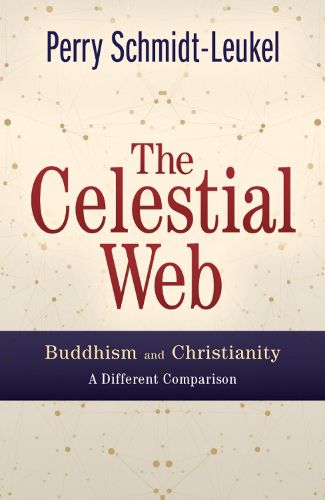Readings Newsletter
Become a Readings Member to make your shopping experience even easier.
Sign in or sign up for free!
You’re not far away from qualifying for FREE standard shipping within Australia
You’ve qualified for FREE standard shipping within Australia
The cart is loading…






This title is printed to order. This book may have been self-published. If so, we cannot guarantee the quality of the content. In the main most books will have gone through the editing process however some may not. We therefore suggest that you be aware of this before ordering this book. If in doubt check either the author or publisher’s details as we are unable to accept any returns unless they are faulty. Please contact us if you have any questions.
A leading scholar of religion applies a new method of interfaith understanding to Buddhist-Christian comparative theology providing rich new insights for students and scholars alike.
In his ground-breaking Gifford Lectures, published as Religious Pluralism & Interreligious Dialogue, Perry Schmidt-Leukel introduced his "fractal" theory of religions, challenging the tendency to distinguish religious traditions as discrete entities without acknowledging the wide variety within them, varieties essentially reproduced in different religious traditions.
After offering an introduction to this new methodology to comparative religion, Schmidt-Leukel, in The Celestial Web, applies this method to a comparison between Buddhism and Christianity. Some of the points of comparison include their respective approaches to the world, ultimate reality, the "dark side" of human existence, and salvation/liberation in terms of the figures mediating it.
Stereotypical approaches often treat these traditions as opposites, for instance, positing that Buddhism embraces an impersonal absolute, whereas Christianity affirms the primacy of one's relationship with a personal God. Yet the fractal approach, which examines "intra-religious" varieties within the two traditions, reveals surprising points of congruence.
$9.00 standard shipping within Australia
FREE standard shipping within Australia for orders over $100.00
Express & International shipping calculated at checkout
This title is printed to order. This book may have been self-published. If so, we cannot guarantee the quality of the content. In the main most books will have gone through the editing process however some may not. We therefore suggest that you be aware of this before ordering this book. If in doubt check either the author or publisher’s details as we are unable to accept any returns unless they are faulty. Please contact us if you have any questions.
A leading scholar of religion applies a new method of interfaith understanding to Buddhist-Christian comparative theology providing rich new insights for students and scholars alike.
In his ground-breaking Gifford Lectures, published as Religious Pluralism & Interreligious Dialogue, Perry Schmidt-Leukel introduced his "fractal" theory of religions, challenging the tendency to distinguish religious traditions as discrete entities without acknowledging the wide variety within them, varieties essentially reproduced in different religious traditions.
After offering an introduction to this new methodology to comparative religion, Schmidt-Leukel, in The Celestial Web, applies this method to a comparison between Buddhism and Christianity. Some of the points of comparison include their respective approaches to the world, ultimate reality, the "dark side" of human existence, and salvation/liberation in terms of the figures mediating it.
Stereotypical approaches often treat these traditions as opposites, for instance, positing that Buddhism embraces an impersonal absolute, whereas Christianity affirms the primacy of one's relationship with a personal God. Yet the fractal approach, which examines "intra-religious" varieties within the two traditions, reveals surprising points of congruence.